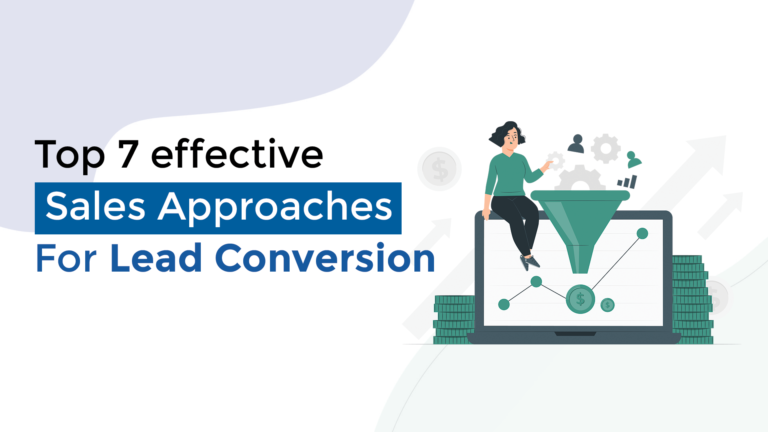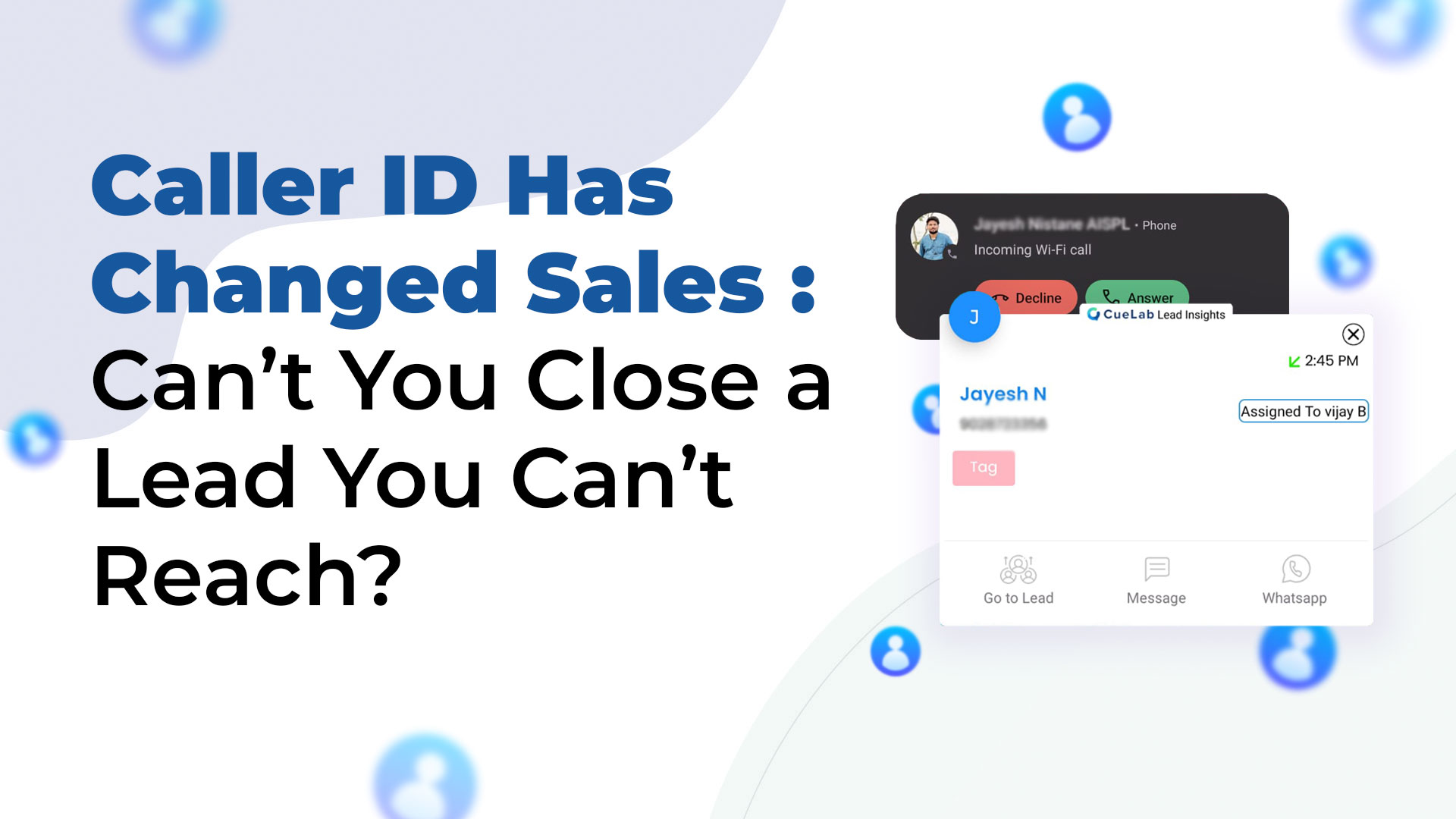Top 7 effective sales approaches for lead conversion


In the ever-evolving realm of sales, the crux of sustained growth lies in effective lead conversion. A seamless transition from potential customer to a paying one demands a nuanced orchestration of sales approaches tailored to diverse preferences. Seven key strategies underpin this transformative journey.
Consultative Selling places customers at the centre, engaging in deep dialogues to comprehend their unique challenges. By becoming trusted advisors, sales professionals tailor offerings precisely to meet customer needs. Solution Selling aligns closely, emphasizing problem-solving narratives to showcase how products address specific issues.
In the digital age, Social Selling leverages platforms to build relationships, establishing sales professionals as industry authorities. Relationship Selling extends beyond transactions, cultivating enduring partnerships through a profound understanding of the customer’s business and preferences.
Inbound Marketing and Content-driven Sales acknowledge the empowered, informed buyer, providing valuable content to position businesses as authoritative sources. Emotional Selling taps into personal aspirations, connecting with buyers on an emotional level. Lastly, creating Urgency and Scarcity through time-sensitive offers or limited availability capitalizes on the psychology of fear of missing out.
Mastering these approaches, from the consultative to the urgency-driven, forms a holistic strategy. By seamlessly blending these methodologies, businesses not only address rational buying aspects but also resonate with the emotional and psychological factors crucial for successful lead conversion in today’s competitive landscape. Utilizing lead management software and a CRM for Facebook leads enhances the efficiency of implementing these strategies.
What is lead conversion?

Lead conversion is akin to transforming curious window-shoppers into actual buyers at a store. Imagine someone expresses interest in a product or service (that’s a lead). The goal is to seamlessly guide them through the buying process until they make a purchase. It’s akin to building a relationship – engaging with the lead, providing useful information, and addressing any concerns they might have.
To make this happen, businesses employ various strategies, including targeted ads and personalized communication. Think of it as tailoring your approach based on what the person likes or needs. Following up at the right time is crucial, much like checking in with a friend to see if they need anything. By doing all this, trust is built, making it more likely the lead will evolve into a loyal customer.
Businesses also keep an eye on crucial signs, like how often a lead interacts or what they’re interested in, to adjust their strategy. So, lead conversion is essentially the process of turning potential customers into happy, paying ones by understanding what they want and helping them along the way to a purchase. Utilizing lead management software and CRM for Facebook leads can significantly enhance the efficiency of these conversion strategies.
Why is lead conversion important?
Lead conversion is pivotal for businesses as it directly impacts revenue generation and facilitates efficient resource utilization. When potential customers (leads) transition into paying customers, it translates to increased income for the company. By monitoring the effectiveness of various marketing strategies, businesses can optimize their time and budget, concentrating on the approaches that yield the highest customer acquisition. Lead conversion rates also serve as performance metrics for sales and marketing teams, offering insights into their effectiveness and areas for improvement.
Understanding customer decision-making processes and preferences enables businesses to craft more compelling messages and enhance their selling techniques. It’s akin to developing a deeper understanding of your customers. Lead conversion rates play a crucial role in establishing realistic goals and making predictions about future sales, guiding the company’s strategic plans. Successful lead conversion provides a competitive edge, setting a business apart in the market. In simple terms, lead conversion is like transforming interested individuals into paying customers, and it’s indispensable for a business to expand, generate revenue, and maintain a competitive advantage. Leveraging lead management software, CRM for Facebook leads, and other solutions is integral to streamlining and enhancing the lead conversion process.
What are the benefits of tracking lead conversion?

Monitoring lead conversion is essential for businesses as it provides crucial insights into the effectiveness of their sales and marketing endeavour. Primarily, it enables companies to gauge the return on investment (ROI) of their marketing campaigns by identifying the channels and strategies yielding successful conversions. This knowledge facilitates the optimization of resource allocation, directing focus toward high-performing avenues.
Secondly, lead conversion tracking allows businesses to comprehend customer behaviour and preferences throughout the sales funnel. By scrutinizing the journey from initial contact to conversion, companies can pinpoint potential bottlenecks, refine their sales processes, and enhance overall customer experience.
Furthermore, tracking lead conversion contributes to the development of a comprehensive customer profile. This in-depth understanding of customers enables more targeted and personalized marketing and sales strategies, thereby increasing the likelihood of successful conversions. It also aids in creating data-driven forecasts, empowering businesses to establish realistic goals and benchmarks.
In conclusion, lead conversion tracking empowers businesses to make informed decisions, adapt to evolving market dynamics, and consistently enhance their sales and marketing strategies for sustained growth and success. Leveraging lead management software, CRM for Facebook leads, and other tools amplifies the effectiveness of these tracking efforts.
7 effective sales approaches for lead conversion:

In the ever-evolving landscape of sales, converting leads into loyal customers is the ultimate goal for businesses. To achieve this, it’s crucial to employ effective sales approaches that resonate with your audience and drive them towards making a purchase. In this blog post, we’ll delve into seven powerful strategies to enhance your lead conversion rates.
1. Personalized Communication:
Tailoring your communication to the specific needs and preferences of your leads is paramount. Utilize data-driven insights to understand their behaviour, interests, and pain points. Craft personalized messages that address their individual concerns, fostering a sense of connection and increasing the likelihood of conversion.
2. Building Trust Through Transparency:
Trust is the cornerstone of successful sales. Be transparent about your products or services, pricing structures, and company values. Provide clear and honest information to build credibility with your leads. A transparent approach instills confidence, making your leads more comfortable with the idea of becoming customers.
3. Leveraging Social Proof:
Humans are naturally inclined to seek validation from others. Incorporate social proof, such as customer testimonials, case studies, and reviews, into your sales strategy. Highlighting positive experiences from previous customers adds credibility to your brand and influences potential leads to take the leap.
4. Implementing a Multi-Channel Approach:
Diversify your communication channels to reach leads through various touchpoints. Combine traditional methods like email and phone calls with modern approaches such as social media, webinars, and chatbots. A multi-channel approach ensures that you’re meeting your leads where they are, increasing the likelihood of engagement and conversion.
5. Nurturing Leads with Content Marketing:
Content is a powerful tool for nurturing leads through the sales funnel. Develop informative and relevant content that addresses your leads’ pain points and provides solutions. This positions your brand as an industry authority, establishing trust and guiding leads towards the decision to purchase.
6. Streamlining the Sales Process:
A complicated and lengthy sales process can deter potential customers. Streamline your sales process by minimizing unnecessary steps and ensuring a seamless transition from lead generation to conversion. Make it easy for leads to understand your offerings and take the next steps towards making a purchase.
7. Continuous Follow-Up and Relationship Building:
Conversion is not always an instant outcome. Consistent follow-up is key to staying top-of-mind with leads and nurturing the relationship over time. Implement automated follow-up sequences, but also inject a personal touch to show genuine interest in your leads’ needs. Building a lasting relationship increases the chances of conversion and encourages repeat business.

What is the significance of a targeted sales approach in lead conversion?
A targeted sales approach is crucial in lead conversion as it allows sales teams to tailor their efforts to specific audience needs. By understanding the unique characteristics of leads, salespeople can create personalized strategies that increase the chances of successful conversion.
How can a consultative sales approach impact lead conversion rates?
A consultative sales approach, which focuses on understanding the lead’s challenges and providing tailored solutions, can significantly impact lead conversion rates. By building a relationship based on trust and addressing individual needs, salespeople enhance the likelihood of converting leads into customers.
How do you determine the right timing for follow-up in lead conversion?
Determining the right timing for follow-up involves understanding the lead’s buying cycle and preferences. Sales teams can utilize data and analytics to track lead engagement, allowing them to time follow-ups strategically. Balancing persistence with respect for the lead’s timeline is key to successful lead conversion.
How can a multi-channel sales approach impact lead conversion efforts?
A multi-channel sales approach involves reaching leads through various channels such as email, social media, and phone calls. This strategy increases the likelihood of engagement by meeting leads where they are most comfortable. It enhances visibility and creates multiple touchpoints, contributing to successful lead conversion.
What role does trust-building play in lead conversion?
Trust-building is foundational in lead conversion. Salespeople must establish credibility and reliability to gain the trust of leads. By consistently delivering value, being transparent, and fulfilling promises, sales professionals create an environment of trust that facilitates the conversion of leads into long-term customers.
Conclusion:
In summary, the top seven effective sales approaches for lead conversion constitute a comprehensive strategy that centres on understanding, engaging, and establishing trust with potential customers. The consultative selling approach takes the spotlight, positioning sales professionals as trusted advisors providing personalized solutions for successful conversions. Personalized engagement ensures interactions are tailored to each lead’s unique preferences and behaviours, enhancing the overall experience.
Active listening, a fundamental skill, allows sales teams to empathetically address concerns and motivations, fostering stronger connections. Timely and strategic follow-up maintains engagement momentum, showcasing consistent value and respect for the lead’s timeline. A multi-channel approach acknowledges diverse communication preferences, increasing visibility and touchpoints for a more effective conversion journey.
Storytelling techniques add a compelling dimension, creating narratives that resonate emotionally with leads and make the product or service more relatable. Trust-building, foundational in lead conversion, is achieved through consistent credibility, reliability, and transparency.
By integrating these approaches, businesses can craft a dynamic and cohesive strategy that maximizes the chances of successfully converting leads into long-term, satisfied customers. This comprehensive approach addresses the multifaceted nature of lead conversion, recognizing the importance of tailored solutions, personalization, communication diversity, emotional resonance, and trust in building successful customer relationships.


